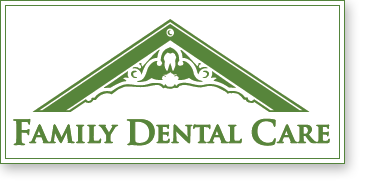Why Dental Insurance May Not be Worth it – Even for Major Procedures
People often view dental insurance as a necessity for completing care, especially if they need a lot of work done. What you might not realize is that dental insurance comes with a host of limitations that diminish its value, even for major dental procedures.
Of course, it’s great if your employer covers your dental insurance. In this case, we like to think of it as a big coupon, and who doesn’t love coupons?
That said, purchasing your own insurance without understanding its limitations is a common mistake. Between limitations regarding coverable procedures and maximum costs, not to mention cost sharing, the benefits rarely outweigh the annual cost of dental insurance, even for extensive procedures.
Dental Insurance Not Worth It – Even for Major Procedures
It’s a common scenario – a patient with dental insurance comes into our office for a crown or other expensive procedure, and assume they won’t need to pay. Then, they’re shocked when we take a closer look at their benefits and find it’s not quite that simple. Here are five limiting factors of dental insurance:
1. Limited coverage – Most insurance policies have a $1,000 annual maximum. That’s enough to cover general dental needs, like cleanings and x-rays, which usually cost around $300-$500 per year. However, it’s not enough to cover bigger procedures, which can sometimes exceed $1,000 each.
So, if you need a couple of fillings, crowns and a root canal – not to mention your general needs – that could cost up to $5,000, $4,000 beyond the annual maximum, of which would still come out of your pocket (and that’s before factoring in cost sharing, which we’ll discuss later).
2. Waiting periods – New insurance policies generally come with a one-year waiting period on procedures beyond the basics of cleanings and x-rays. If you purchase insurance and need a major procedure, you’ll either have to front the cost yourself or wait a year for the waiting period to expire. By that time, costs multiply exponentially because bacteria multiplies exponentially.
3. Cost sharing – Insurance rarely covers 100 percent of anything, even within your maximum dollar amount. Many times, you’ll have to pay 40-60% of a major procedure’s total cost.
For instance, if you need a root canal, which costs between $800 and $1,200, you’ll still pay between $400 and $600. Add in basic annual care besides the root canal, and you’re going to hit that $1,000 annual maximum pretty quickly, leaving you to pay for the rest on your own.
4. Percentages can be misleading – Dental benefits may say they are paying a percentage for a procedure, but that will likely be for a number that is below the dental office fee.
They will pay for a percentage of a dollar amount the benefit company creates for that procedure. For example, the benefit company may pay for 50 percent of a crown, but only up to $800: If the crown fee is $1,000, then they are actually only paying for 40 percent of that crown cost. Many times, the percentage of a procedure they pay for is 20 percent less than the percentage advertised.
5. Won’t cover everything – Insurance never covers anything cosmetic, or even some of the latest materials. If you require a tooth-colored crown, tooth-colored filling, veneer, dental implant or teeth whitening, don’t count on your insurance to pay.
We know we’re throwing a lot at you. To tie it all together, here’s a real life example that we encountered just recently.
In walks a patient who just purchased an individual plan. He’s paying $1,080 per year ($90 per month) for $750 of coverage after cost sharing. He couldn’t get the filling or crown he needed because of his one-year waiting period, limiting him to basic procedures, which cost him maybe $400 per year. That means there was $680 left over that he couldn’t even use, not to mention a $100 annual deductible.
Fast forward to year two, and he pays another $1,080 plus his deductible. However, now he can finally get his crowns done! Unfortunately, each crown costs $1,100, meaning he’s exceeding his maximum with just one crown. Plus, his insurance company would only cover $600.
Occasionally, a patient will ask us if they can just delay their procedures to evenly distribute the costs over a series of years. Here’s the issue: Dental problems generally get worse with time, and consequently, so do the costs. Like a casino, the insurance company always comes out ahead.
We realize that having dental insurance probably makes you feel more secure. But understand that for most intents and purposes, that’s the extent of what you’re purchasing: A sense of security. From a practical perspective, it could actually cost more to purchase it than not having it at all.
The best ways to save money on an extensive amount of dental work are through early detection and early treatment. Find a dental office committed to saving you money and getting you to where you want to be for the long-term. Between its high costs and limitations, paying for your own dental insurance is rarely worth it.
Feel free to contact us to help you evaluate the real benefits of your benefits, especially if you are considering an individual plan. We’d be glad to give you a free insurance consultation in addition to a dental consultation.
Are You Suffering from Tooth Pain? We Can Help!
Tags: affordable dentists, Dental Insurance, dentist cost, dentist no insurance, No insurance

